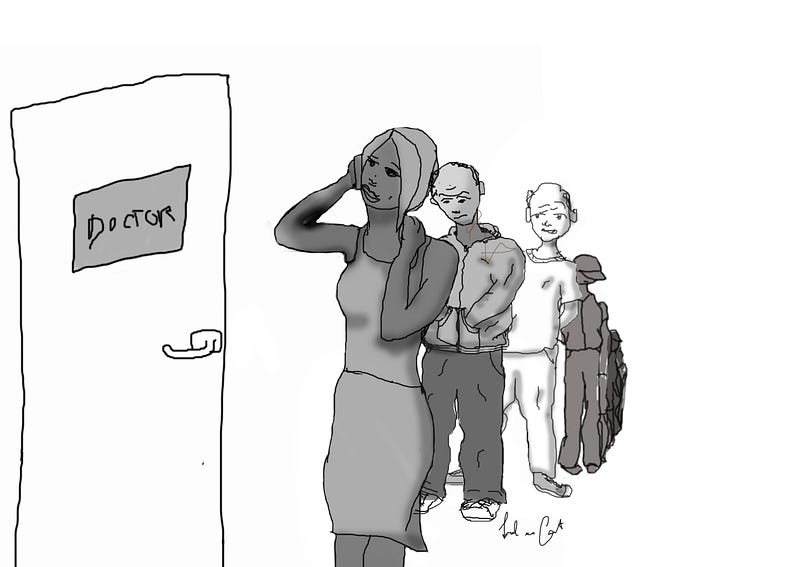
Umoja-UBAKA Community hosts “Race, Class and Health Equity” workshop
By Jumoke Evans
“If you don’t know where your next meal is coming from,” Dante Allen said, “it can play a critical role in your mental and physical being.”
Allen is the senior communications officer at the Calif. Dept. of Public Health Office of Health Equity, and was hosted by Laney College’s Umoja-UBAKA Community for a “Race, Class and Health Equity” workshop on March 28.
The workshop discussed the health status of African Americans as a people in California, and the health services available to all Peralta students covered by their student health fees.
Umoja Faculty Co-Coordinator Dr. Kimberly King organized the event, which focused the discussion around vulnerabilities in communities (particularly Black) in terms of healthcare.
Allen’s interest in health advocacy and communications began with his own disability — spina bifida, an infant developmental issue beginning in the womb, which causes protrusion of the spinal cord tissue.
Allen, who uses a wheelchair, explained that the causes of the disorder are genetic, nutritional, and environmental. Rather than being a hindrance, Allen’s spina bifida has aided him in developing his career and goals toward health.
He is now working with low-income minority communities that suffer from the same genetic, nutritional, and environmental issues.
When Allen addressed the diverse, yet majority Black audience, he began with vulnerable populations and asked which category we would belong to. “The answers included but were not limited to “women, low income, immigrants, disabilities, mental health, children…”
As he scanned the room, he said: “The leading factors are that the rules were set up to benefit someone other than you or that you face discrimination on a regular basis and those things have a very distinct health impact.”
Allen then gave a brief history of the financial and other struggles of the Black community, starting at the end of World War II.
When most soldiers were coming home, the Federal Housing Administration (FHA) supported them by granting access to home ownership.
Despite the ability to alleviate some economic strain of the era, the FHA based their mortgage eligibility criteria on race and ethnicity which denied access to mainly black or other minority soldiers.
This policy was known as “redlining.” Allen suggested that this period in history has placed African Americans on the bottom of the socioeconomic totem pole, because “the best way to build wealth is through homeownership.”
He explained that 30 percent of our overall health problems stem from social and environmental factors. “There are obligations beyond eating right and exercising that have been withheld from our community and economic class,” he said.
“When we often hear about health, we think in terms of personal choices and our genetic predispositions such as high blood pressure or sickle cell, but honestly most of our health issues come from social and environmental factors.”
An audience member who works for the Women, Infants, and Children Nutrition and Food Services (WIC) on International Blvd. explained the decline in immigrants picking up food vouchers due to their fear of deportation leading them to starve.
Another audience member said that schools offer free breakfast programs, and that it should help student health, but Allen rebutted that by saying that just breakfast, while helpful, was not enough to keep children from suffering negative effects of hunger.
The workshop also included Laney Health Services’s Veronica Crawford, who let the audience know that mental health counseling is available on every Peralta campus.

























